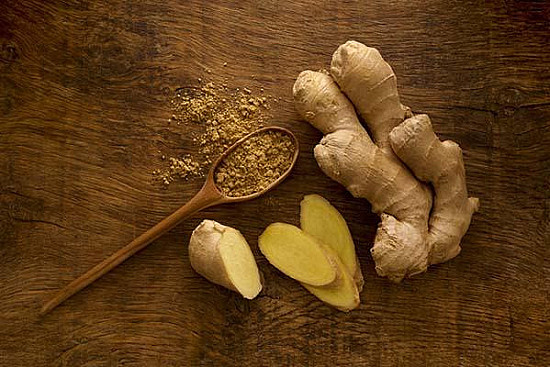Ginger is widely used around the world as a spice, tea ingredient, and natural remedy. Many people appreciate its warming flavor and the way it can soothe an upset stomach or support digestion. While ginger offers benefits for most individuals, it is not suitable for everyone. Certain health conditions may react negatively to large or frequent amounts of ginger. Knowing when to be cautious can help people use it safely and responsibly.
When Ginger May Cause Digestive Discomfort
Although ginger is known for helping with nausea, some individuals experience the opposite effect. In people with very sensitive stomachs, ginger may increase acid levels, leading to burning sensations or indigestion. Those who frequently struggle with heartburn, acid reflux, or stomach irritation may notice these symptoms becoming worse when ginger is consumed in high amounts. Reducing the quantity or using it only occasionally may help lessen discomfort.
Potential Concerns for People With Gallbladder Issues
Ginger can stimulate bile production, which is usually helpful for digestion. For individuals with gallstones or inflammation of the gallbladder, however, this increased activity might lead to cramping or sharp discomfort. The gallbladder’s movement can become more noticeable, and some people may feel pressure or unease after drinking strong ginger tea or taking concentrated ginger extracts. Those with known gallbladder conditions are often advised to approach ginger carefully and monitor how their body responds.

Effects on Blood Clotting
Another important consideration is ginger’s influence on blood consistency. Ginger has natural properties that may slightly thin the blood. For most healthy people, this is harmless. But for individuals with clotting disorders or those taking medications that already reduce clotting, frequent use of ginger may not be ideal. It could increase the risk of bruising or make it harder for small cuts to stop bleeding quickly. People who use medications that affect blood clotting often prefer to limit concentrated ginger supplements.
Interaction With Blood Sugar Regulation
Ginger may also affect blood sugar levels. In some individuals, it contributes to lowering blood sugar slightly. While this might seem beneficial, people who already use medication for managing blood sugar need to be cautious. Too many substances lowering blood sugar at the same time can lead to unwanted drops in energy or feelings of shakiness. Anyone who experiences dramatic changes in energy after consuming ginger products might benefit from reducing the amount and paying attention to how their body reacts.
Considerations During Pregnancy
Many people recommend ginger for easing mild pregnancy-related nausea, but this is not the case for everyone. Some pregnant individuals find ginger too stimulating for the stomach, while others may be concerned about using strong herbal products during pregnancy. Larger amounts of ginger—especially in supplement form—are generally avoided out of caution. Smaller amounts used in everyday cooking are usually considered gentler, but it remains important to listen to personal comfort levels.

Using Ginger Mindfully
For most people, ginger remains a flavorful and comforting ingredient. The key is moderation and awareness, especially for anyone with existing medical conditions. Ginger tea, grated ginger in meals, or small pieces in recipes can offer taste and warmth without overwhelming the system. Individuals who notice discomfort after consuming ginger can try reducing the amount, choosing milder preparations, or rotating it with other soothing spices.
Final Thoughts
Ginger can be a wonderful addition to many diets, but it is not universally suitable for every situation. Those with gallbladder difficulties, sensitive digestion, clotting concerns, or blood-sugar-related conditions may need to use it more carefully. Paying attention to how the body reacts and choosing gentle, balanced portions can help ensure that ginger remains a helpful and enjoyable part of everyday life.

















